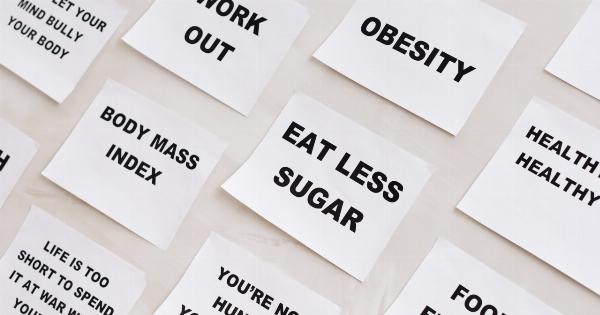Menopause, a natural process that occurs in women’s lives usually in the late 40s or early 50s, brings several hormonal changes to their body.
The decreasing level of estrogen during menopause triggers various physical and emotional symptoms such as hot flashes, mood swings, night sweats, weight gain, etc. However, it is often overlooked that menopause also affects women’s dietary needs and eating patterns. Therefore, understanding how menopause affects dietary habits can help women make healthier and more informed food choices.
Why Menopause Affects Your Diet?
1. Hormonal Changes: The hormonal shifts during the menopausal period can trigger changes in appetite, metabolism, and digestion.
The declining estrogen levels affect the levels of other hormones that regulate appetite, including leptin, ghrelin, and insulin. As a result, women may experience an increase or decrease in appetite and may crave unhealthy foods.
2. Slower Metabolism: As women age, their metabolism slows down, which means they burn fewer calories. This decrease in metabolism can lead to weight gain if women continue to consume the same amount of calories as they did in their younger years.
3. Bone Health: During the menopausal period, women become more prone to osteoporosis, a condition that weakens bones and causes them to break easily.
Good nutrition, especially calcium and vitamin D intake, can help prevent bone loss and maintain bone density.
What Are the Dietary Needs During Menopause?
1. Calcium and Vitamin D: Women during menopause need more calcium and vitamin D to maintain bone health. Calcium-rich foods such as dairy products, leafy greens, and fortified cereals are recommended.
Vitamin D can be obtained from sun exposure, fatty fish, and fortified foods like milk, orange juice, and cereal.
2. Protein: Protein is essential for maintaining muscle mass that tends to decline with age. Good protein sources include lean meat, poultry, fish, beans, and nuts.
3. Fiber: Fiber helps regulate bowel movements and reduces the risk of heart disease. Women in menopause should aim for at least 25 grams of fiber per day from whole grains, fruits, vegetables, and legumes.
4. Water: Adequate hydration is crucial during menopause to prevent hot flashes, constipation, and urinary tract infections. Women should aim to drink at least eight glasses of water per day.
What Foods Should Menopausal Women Avoid?
1. Sugar and refined carbs: Menopausal women may experience an increase in blood sugar levels, making them more prone to type 2 diabetes and other health problems.
Therefore, they should limit their intake of sugary drinks, processed snacks, and refined carbs such as white bread, pasta, and rice.
2. Saturated and trans fats: Consuming too much saturated and trans fats can increase the risk of heart disease, which becomes more common during the menopausal period.
Menopausal women should limit their intake of red meat, fried foods, and processed foods that contain hydrogenated oils.
3. Caffeine and alcohol: Both caffeine and alcohol can trigger hot flashes, disrupt sleep, and increase the risk of osteoporosis. Therefore, menopausal women should limit their intake of coffee, tea, soda, and alcoholic beverages.
How Can Menopausal Women Change Their Eating Habits?
1. Portion Control: As metabolism slows down, women should reduce their portions and eat smaller, more frequent meals throughout the day. They should also avoid skipping meals to prevent overeating later.
2. Plan Ahead: Planning meals and snacks in advance can help women to make healthier choices and avoid impulse eating. Having healthy snacks on hand, such as nuts, fruits, and yogurt, can also help reduce unhealthy cravings.
3. Cook at Home: Cooking at home allows women to control the ingredients and avoid processed foods that are often high in added sugars, salt, and fat. Using more herbs and spices instead of salt can also help lower blood pressure.
4. Stay Active: Incorporating physical activity into daily life can help women maintain their weight and improve their mood and overall health. Women should aim for at least 30 minutes of moderate exercise, such as brisk walking, most days of the week.
Conclusion
Menopause is a significant hormonal shift for women, affecting their physical, mental, and emotional health, including their dietary needs.
Consuming a balanced diet that includes more calcium, vitamin D, protein, fiber, and water can help manage the symptoms of menopause and prevent health problems related to aging. Avoiding certain foods such as sugar, refined carbs, saturated fats, and alcohol can also help improve health and quality of life during this stage of life.
Women in menopause should focus on making healthier food choices, staying active, and seeking guidance from healthcare professionals if needed.































